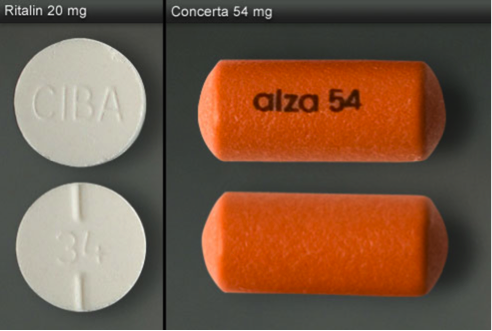Current research by the American Academy of Child and Adolescent Psychiatry reports that medications used to treat symptoms of Attention Deficit Hyperactivity Disorder (ADHD) do not exacerbate tics in children. ADHD is a common childhood disorder marked by impulsive behaviour and an inability to concentrate. The findings of the study are particularly pertinent because most prior research suggests that psycho-stimulant medications trigger tics. As a result, the Food and Drug Administration Agency of the United States (FDA) issues warnings on all psycho-stimulant medications listing tics as an adverse effect. The warnings deter doctors from prescribing psycho-stimulants to any child with a family history of tics. Psycho-stimulants remain the best-known solution for ADHD symptoms. What are Psycho-stimulant Medications? Psycho-stimulants, or amphetamines, activate the central nervous system to increase dopamine in the brain. Dopamine is an important neurotransmitter. Neurotransmitters help connectivity between brain regions. For ADHD patients, increasing connectivity between brain regions improves concentration and reduces the behavioural issues associated with impulsivity.

Psycho-stimulant medications appear to increase brain activity in children with ADHD.
Source: https://neuroanthropology.files.wordpress.com/2009/06/adderall-brain1.jpg?w=562
What are Tics?
Tics present as repetitive vocal sounds or physical actions. Tics are sudden, rapid and non-rhythmical. Tics are difficult to control. Common tics include grunting, blinking, sniffing, and throat clearing.

Common motor tics include grimaces and blinking actions.
Source: http://kimgaitskillmd.com/psychiatrist/adult-child-psychiatrist-conditions/tic-disorders-tourettes
The Study
Researchers performed a meta-analysis to examine whether medications increased tics. A meta-analysis looks at previous studies and compares results. Researchers compared twenty-two previous studies from a total of 2385 children with ADHD. The twenty-two studies together included data sets collected between 1974 and 2011. All studies reported some increased tic behaviour after either trials with a psycho-stimulant medication, or a non-active placebo medication. All trials lasted at least seven days. The Yale Global Tic Severity Scale considers a seven-day trial the minimum sufficient for successful clinical testing.
Results of the Study Tic behaviours increased the most after placebo treatments. Psycho-stimulant medications designed for ADHD did not increase tics. Researchers examined all FDA approved ADHD medications.

Ritalin (left) and Concerta (right) are two commonly prescribed psycho-stimulant medications for the treatment of ADHD symptoms.
Source: https://www.pinterest.ca/pin/246149935854994927/
What Causes the Tics?
This new study shows ADHD medications do not exacerbate tics. Tics probably result from an underlying predisposition to a tic disorder. Twenty percent of children diagnosed with ADHD posses an underlying tic disorder. Symptoms of ADHD also usually present before tics. Psycho-stimulant treatments generally commence before tics appear. Increases in subsequent tic behaviour may be coincidental.
Should We Medicate?Although the new study indicates ADHD medications do not intensify tics in children, other known side effects exist. Common side effects include appetite loss and insomnia. It is important to remember, however, that poor social skills and low academic performance often affect young ADHD patients more than any known side effect.
References
Berman, S. M., Kuczenski, R., McCracken, J. T., & London, E. D. (2009). Potential adverse effects of amphetamine treatment on brain and behavior: A review. Molecular Psychiatry, 14(2), 123–142. http://doi.org/10.1038/mp.2008.90
Cohen, S. C., Mulqueen, J. M., Ferracioli-Oda, E., Stuckelman, Z. D., Coughlin, C. G., Leckman, J. F., & Bloch, M. H. (2015). Meta-analysis: Risk of tics associated with psychostimulant use in randomized, placebo-controlled trials. Journal of the American Academy of Child & Adolescent Psychiatry, 54(9), 728-736. doi:10.1016/j.jaac.2015.06.011
Khajehpiri, Z., Mahmoudi-Gharaei, J., Faghihi, T., Karimzadeh, I., Khalili, H., & Mohammadi, M. (2014). Adverse reactions of methylphenidate in children with attention deficit-hyperactivity disorder: Report from a referral center. Journal of Research in Pharmacy Practice, 3(4), 130–136. http://doi.org/10.4103/2279-042X.145389